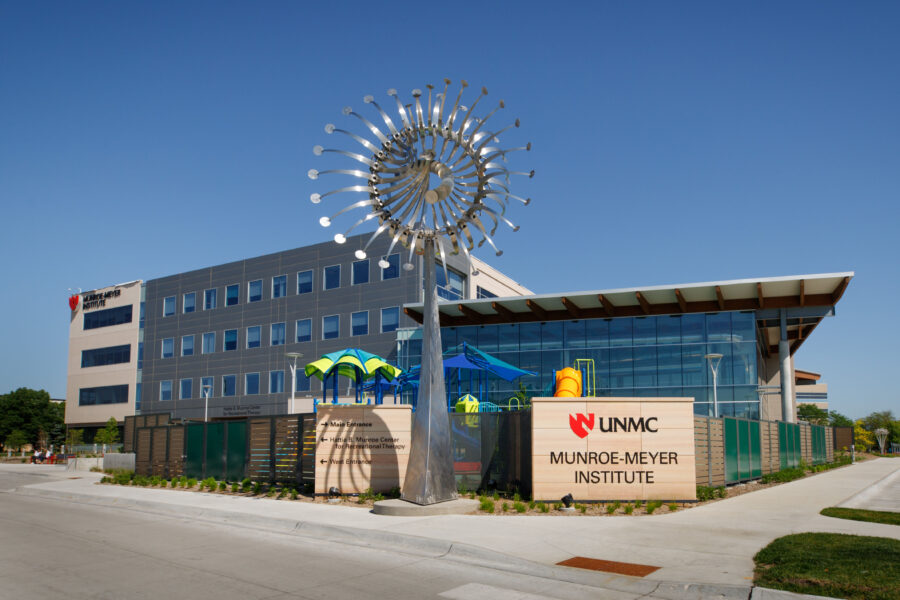A new clinic initiative has made the Munroe-Meyer Institute a one-stop shop for young adults transitioning toward visiting adult care providers.
MMI’s Transition to Lifespan Care (TLC) Clinic is designed for individuals with intellectual or developmental disabilities who are transitioning to adulthood. Many of those individuals are still seen by pediatric providers, said Angela Maynard, manager of MMI’s outpatient clinic.
“Parents often describe this period of time for their kiddos, as they finish school, as falling off a cliff,” Maynard said. “They lose services and don’t know what to do about health care.”
The TLC Clinic offers evaluations and ongoing recommendations to support individuals as they transition to adult providers. Some individuals may need a one-time visit, while others may need multiple visits over several years.
The clinic, which meets monthly, has served seven patients since starting in August.
The team consists of members from several disciplines and they often make referrals for care from additional services to help guide patients through the transition.
Before meeting in person, clients complete an intake call via Zoom. Providers learn about the patient and get their comprehensive care history.
In person, the client meets with each member of the TLC Clinic team. In addition to Maynard, that includes Lynda B. Hayes, PhD, assistant professor in the MMI’s Department of Psychology; Maggie Neujahr, manager of MMI’s Care Coordination program; Samantha Montemarano, occupational therapist; Anne Woodruff Jameson, DPT, physical therapist; and Sarah Smith, MD, assistant professor in the UNMC Division of General Internal Medicine.
The client attends 45-minute sessions with team members from medicine and nursing, psychology and care coordination, and occupational and physical therapy.
After the visit, the care team meets to discuss findings and recommendations. Then Maynard sends a personalized plan of care to parents and patients, as well as any recommendations or referrals.
Patients have access to members of the TLC team for questions or concerns that may pop up as they navigate the transition.
The “one-stop shop” format can be especially beneficial for patients who live outside of the Omaha metro area, Maynard said.
The clinic also allows patients to connect to community resources, including vocational rehabilitation and programming, through the Department of Health and Human Services.
The goal is to continue growing the clinic to serve more individuals and find ways to continue to assist individuals who live outside of the Omaha metro area.
